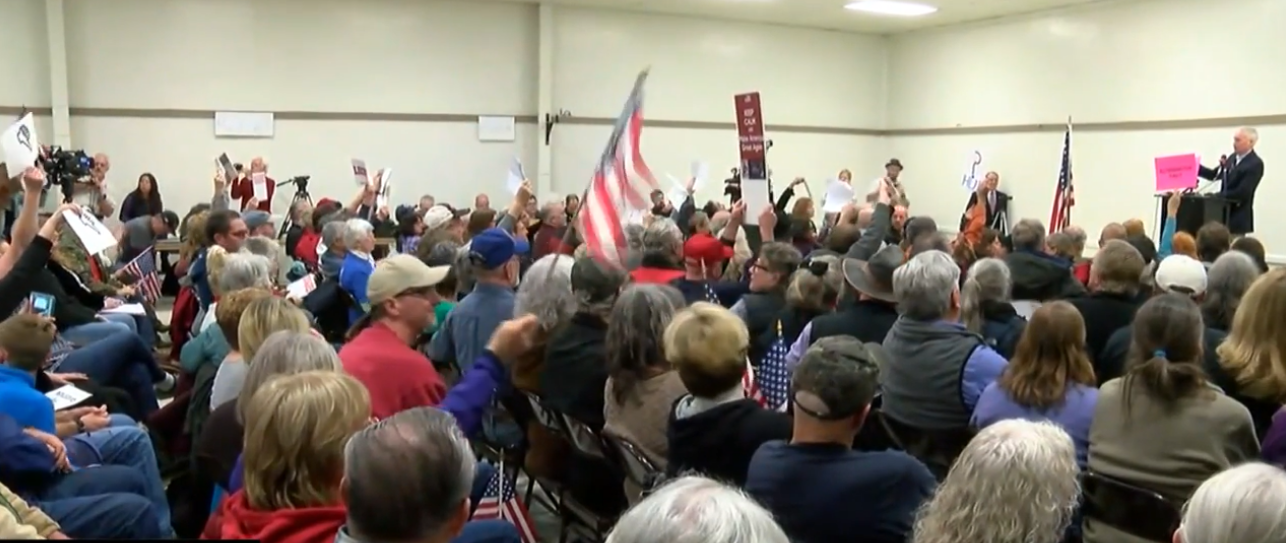Senator Schumer
U.S. Senator Charles E. Schumer has announced legislation that will finally close a loophole in the federal law that prevents summer camps, little leagues, Boy Scout troops, children’s groups and other not-for-profit organizations that work with children from gaining access to federal criminal background checks on new employees and volunteers.
Earlier this month, seventy-one individuals were charged in child pornography ring and a number of those charged held jobs that commonly work with children. For example, one individual was both a Boy Scout leader and Little League coach, another individual was a rabbi who taught at a Jewish girls seminary, and another individual taught religious classes at a Catholic church.
Under current law, most children’s organizations only have access to the New York State database, and lack access to FBI databases, which is the most accurate, complete and up-to-date criminal database.
Also, New York State’s criminal database – which is the only resource most local groups have access to – lack records of criminal activity committed out of state, when the offense is not federal. As of 2010, over 40% of the individuals with criminal records had committed an offense in a state other than where they were applying to volunteer, meaning that a state-only search would not have found relevant criminal records.
Schumer noted that an applicant to be a camp counselor, for example, could have been convicted of an assault in Ohio, or committed a sex crime in Florida but there may be no record of it in the NYS database. Schumer’s bi-partisan legislation, The Child Protection Improvements and Electronic Life and Safety Security Systems Act, would grant youth-serving organizations access to FBI background checks for volunteers and new employees, so they would be able to check for any violent or sex crime committed anywhere in the country, regardless of where it is committed and whether it is a state or federal crime.
“The recent child porn bust involving the arrest of a Boy Scout leader, little league coach and religious education teacher highlight the disturbing fact that some individuals who we trust to work with our children may be sexual predators,” Schumer said. “As a parent, I know there is nothing more important than keeping our children safe from harm—and at the moment, there is a flaw in federal law that is making it harder for employers at child-serving organizations to fully screen applicants for jobs and volunteer positions.”
Schumer added: “With summer around the corner, I am putting on full court press to pass legislation that will allow summer camps, little leagues, Boy Scouts and other children’s organization access to federal background check data that is the most accurate and up-to-date database and will help keep children safe from dangerous predators. Parents deserve the peace of mind knowing that their children are in good hands when they drop them off at camp or afterschool programs.”
“Most parents and community members assume that persons working in positions of trust with children have undergone comprehensive criminal background checks, but many organization’s providing services to children are statutorily restricted from accessing this readily available information to conduct background checks. I applaud Senator Schumer for his ongoing commitment to keeping our most vulnerable safe, this legislation will remove the bureaucratic obstacles that have provided convicted sex offenders unfettered access to potential victims,” said Laura Ahearn, L.M.S.W., Executive Director of Parents for Megan’s Law and the Crime Victims Center.
Child-serving organizations currently do not have access to the most up-to-date federal FBI background check database. Over 15 million adults contribute volunteer service to education or youth programs. Just about one-third of states allow a range of youth-serving organizations to access FBI searches, and New York is not one of them. And, even when those searches are available, they can be cost-prohibitive and time-consuming and discourage many groups from obtaining the background checks. Under current law, an organization must apply for a background check through its state.
The Child Protection Improvements and Electronic Life and Safety Security Systems Act would create a nationally-accessible background check solution for youth-serving organizations, and ensure access to federal FBI fingerprint background checks. Specifically the legislation would do the following:
· Provide child serving organizations with reliable and accurate information regarding the fitness of volunteers/employees to have responsibility for the safety and well-being of the children in their care; and
· Facilitate widespread access to State and national criminal history background checks, not otherwise authorized by Federal or State law, on covered individuals and on employers and employees in the electronic life safety and security systems industry.
This legislation will require the Attorney General to designate an entity to process state and federal background checks and make fitness determinations for individuals covered by the two categories listed above. This bill is entirely paid for by fees from the entities seeking background checks, and requires no new authorizations or appropriations. In addition, this bill does not impose any new or unfunded mandates on the states. The bill also protects due process by requiring users of this information to follow guidance on using background check information published by the Equal Employment Opportunity Commission. Finally, individuals are provided an opportunity to challenge the accuracy and completeness of their records with the FBI and are ensured that the privacy of their records will be protected.
Schumer provided an example of how this process would work: If a summer camp in New York City wants to hire a paid or volunteer counselor, they could call DOJ’s new 1-800 number and find out where to get the background check done locally. Mostly likely this would be at the local police station where systems are already in place to make it a smooth process. The organization would pay a processing fee at the Police station and they would send the counselor’s fingerprints to DOJ. Then the Dept. of Justice would run the fingerprints through the FBI’s records which cover both state and federal crimes in every state, not just in New York. The camp would then hear the results from DOJ – not a full personal record, but whether the counselor had a serious conviction or open arrest.
Schumer pointed to a recent child porn ring that led to the arrest of 71 individuals charged with trading child pornography in the New York City area. A number of those arrested worked in child serving organizations. For example, the bust included two registered nurses, a Brooklyn rabbi who taught at a Jewish girls seminary, a police chief who taught children in religious classes, and a nanny.
Statistics from the now-expired PROTECT Act Child Safety Pilot, which was passed in 2003 as a part of the PROTECT ACT, demonstrate the importance of a nationwide fingerprint-based FBI criminal background check. The Pilot program helped many of the same organizations that would be served by Schumer’s bill; by working with the state governments to give access to FBI fingerprint background checks to youth-serving organizations. As of September 2010, of 77,000 background checks performed through the pilot in seven years, over 6% of volunteers were found to have a criminal record of concern – including very serious offenses like sexual abuse of minors, assaults, murder, and serious drug offenses. In addition, over 40% of the individuals with criminal records had committed an offense in a state other than where they were applying to volunteer, meaning that a state-only search would not have found relevant criminal records.
Schumer also noted that fingerprint background checks have become increasingly important since name-based background checks have a higher incidence of “false positives” or inaccurate information. In fact, nearly 23% of the individuals screened by the pilot provided a different name or date of birth on their application than what appeared on the criminal record. A name-based search would likely not have caught these criminal records. Schumer’s legislation would make running a fingerprint background check easier for youth-serving organizations.
Schumer’s legislation has been endorsed by: Afterschool Alliance, American Camp Association, America’s Promise Alliance, Big Brothers Big Sisters of America, Boys & Girls Clubs of America, Camp Fire USA, Communities In Schools, Inc., First Focus, GLSEN – the Gay, Lesbian and Straight Education Network, MENTOR/National Mentoring Partnership, National Collaboration for Youth, and YMCA of the USA.







